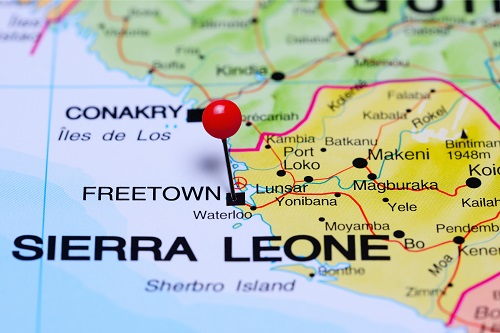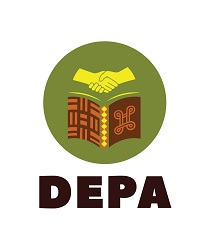Salone DEPA — Peace Education Project in Sierra Leone
A project that worked with communities in Freetown and Kamakwie to use storytelling, theatre and video to teach and learn about peace.Salone DEPA worked in Freetown and Kamakwie to develop peace education using local storytelling, theatre and film. The project trained teachers, youth and community members.
Project Introduction
The Salone DEPA project took place in Freetown (the capital) and Kamakwie (Northern Province). The team included 'H' Patten, Alex Mbayo, Aruna Lumeh, Issa Roberts and Abigail Renner. The project worked with local teachers, youth groups, traditional leaders and artists.

Aim of Project
We wanted Sierra Leonean teachers, academics, and practitioners to collect ideas about peace from local people. We used three arts ways to do this: theatre and dance, storytelling, and phone video. The data gathered from these projects is now being processed to create teaching and learning materials for peace education. These resources will be useful not only in Sierra Leone but also across Africa, in both formal and informal learning settings.
The Storytelling project took place in two Limba villages in Kamakwie, in the Northern Province. It trained 21 teachers in how to lead storytelling sessions and analyse stories. The Theatre and Dance project trained 24 participants in community theatre‑in‑education, and the Videography project trained more than 60 young people in documentary filmmaking using mobile phones. Both of these projects were held in Freetown, the capital city. Key participants across all the projects included local teachers, youth groups, traditional and community leaders, artists, and other community members.
Project Methodology
To carry out strong, efficient, and trustworthy research, the DEPA project used a mix of methods. These included qualitative and ethnographic approaches, personal interviews, and arts‑based activities. These methods helped collect data from all the participant groups.
Storytelling
For the storytelling project, individual oral stories were recorded on video. These included folk tales, myths, traditional stories, problem and dilemma stories, ghost stories, and Nancy stories. Many of these stories reflected real‑life issues such as poor leadership, unfair laws, inheritance disputes, resource exploitation, environmental damage, and gender inequality.
Theatre
For the theatre project, participants used community theatre techniques to explore peace and education. Activities included live performances and plays, posters about family and community issues, and songs that shared messages of peace.
Videography
The videography project trained young people to use mobile phones for documentary and creative storytelling. They learned film production and visual arts techniques to share stories and communicate messages and symbols.
The project used several research methods, including interviews, snowball sampling, focus group discussions with stakeholders, participant observation, and content analysis. The research team relied on their local knowledge to interpret cultural norms, values, traditions, and the signs and symbols needed to support a decolonial approach.
However, the project was not fully decolonial because it still had to follow certain Open University rules, such as mask requirements and separating children into groups.
Preliminary Findings
The DEPA project found that much indigenous knowledge and practices, akin to peace and peace education exist within traditional practices and cultures but have remained untapped and are presently dwindling.
It was also found that a bottom‑up approach to peace education connects more strongly with community members, especially those living in rural areas far from provincial towns.
The DEPA project additionally found that the cultures of the indigenous people of Sierra Leone are a uniting force and the best vehicle to use/employ in reaching out with messages of peace
It was discovered that Salone DEPA has the potential to contribute significantly to and enhance peace education across cultures and ethnic groups, reducing tensions nationally.
In the same way, the project found that Salone DEPA can help revive storytelling, theatre, dance, and visual arts. This can empower young people not only to promote peace and report injustice, but also to speak up about actions that may threaten fragile peace. Through this work, they can take greater control of their own future and the future of their country, while also contributing to the development of peace education across Africa through the wider DEPA project.
Project Highlights
- Many of the participants have gone on to use the creative industries in entrepreneurial ways, setting up their own businesses and a number finding employment within the fields they were trained in during DEPA.
Educational Resources
- The Storytelling, Theatre/dance, and Film/videography projects are all in the process of developing step-by-step training manuals to enable others to train within each of the artistic genres. Extension projects are currently being planned to develop additional trainers and trainees in testing out the physical and online training manuals.
Impact
- Each of the projects has developed a whole cohort of peace ambassadors, whilst providing skills development and training for peers, way beyond those initially trained.

